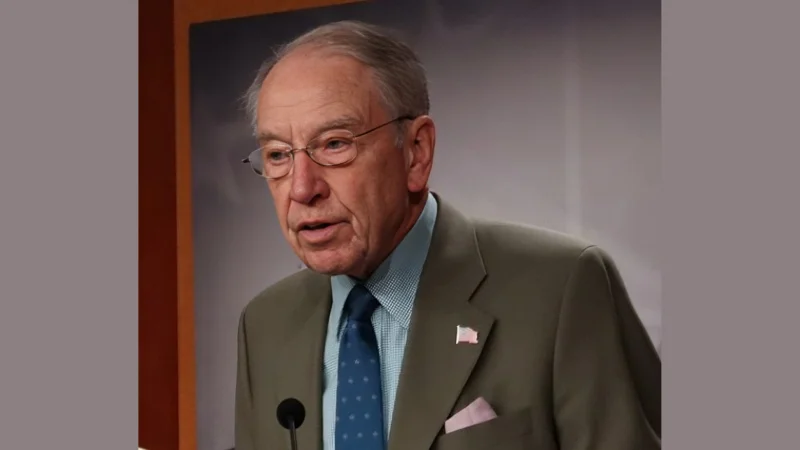Chuck Grassley, Chairman of the Senate Judiciary Committee | Facebook, Senate Judiciary Committee Republicans
Chuck Grassley, Chairman of the Senate Judiciary Committee | Facebook, Senate Judiciary Committee Republicans
Senate Judiciary Committee Chairman Chuck Grassley (R-Iowa) has released responses from two federal judges and the Administrative Office of the Courts (AO) regarding the use of generative artificial intelligence (AI) in drafting court orders that contained factual errors.
Judge Henry T. Wingate of the U.S. Southern District of Mississippi and Judge Julien Xavier Neals of the U.S. District of New Jersey both acknowledged that their staff used generative AI to draft orders with significant inaccuracies. These included misquoting state law, referencing individuals not involved in the cases, and attributing fabricated quotes to defendants.
"Honesty is always the best policy. I commend Judges Wingate and Neals for acknowledging their mistakes and I’m glad to hear they’re working to make sure this doesn’t happen again," Grassley said. "Each federal judge, and the judiciary as an institution, has an obligation to ensure the use of generative AI does not violate litigants’ rights or prevent fair treatment under the law. The judicial branch needs to develop more decisive, meaningful and permanent AI policies and guidelines. We can’t allow laziness, apathy or overreliance on artificial assistance to upend the Judiciary’s commitment to integrity and factual accuracy. As always, my oversight will continue."
In response to these incidents, Judge Wingate now requires all draft opinions, orders, and memos to undergo a second independent review and mandates that all cited cases be printed and attached to final drafts. Judge Neals has instituted a written policy prohibiting law clerks and interns from using AI when drafting opinions or orders, along with a multi-level opinion review process.
The AO also addressed Grassley's inquiry by highlighting its recently established advisory AI Task Force. This task force issued interim guidance on July 31, 2025, offering general suggestions for experimenting with AI tools in court operations while recommending users consider disclosing when AI is used. These guidelines are temporary as more comprehensive policies are developed.
The Senate Judiciary Committee holds broad authority over civil and criminal judicial proceedings as well as oversight over federal courts and judges. Errors stemming from artificial intelligence usage have raised concerns about decision-making accuracy within the judiciary.
Read Wingate’s full response to Grassley HERE.
Read Neals’ full response to Grassley HERE.
Read AO’s full response to Grassley HERE.






 Alerts Sign-up
Alerts Sign-up